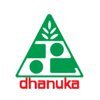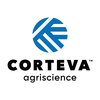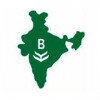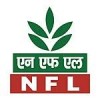Filter interviews by
PI Industries Executive Production Interview Questions, Process, and Tips
PI Industries Executive Production Interview Experiences
3 interviews found
I appeared for an interview in Feb 2023.
(8 Questions)
- Q1. What are the differences between the fire point and flash point?
- Ans.
Fire point is the temperature at which a fuel continues to burn after ignition, while flash point is the temperature at which a fuel produces a flammable vapor.
Fire point is higher than flash point.
Flash point is the minimum temperature at which a liquid gives off vapor in sufficient concentration to ignite.
Fire point is the temperature at which a fuel sustains combustion once ignited.
Flash point is used to classify fl...
- Q2. What is the difference between flash distillation and fractional distillation?
- Ans.
Flash distillation is a single-stage process where a liquid mixture is vaporized quickly, while fractional distillation is a multi-stage process where the mixture is separated into fractions based on boiling points.
Flash distillation is a rapid vaporization process used for separating components with large differences in boiling points.
Fractional distillation is a slower process that involves multiple distillation stag...
- Q3. What is the difference between "flammable" and "inflammable"?
- Ans.
The terms 'flammable' and 'inflammable' mean the same thing - capable of catching fire easily.
Both 'flammable' and 'inflammable' mean easily ignited and capable of catching fire.
The prefix 'in-' in 'inflammable' does not mean 'not' as in other words, but rather intensifies the meaning.
The use of 'inflammable' can sometimes cause confusion due to the misconception that it means 'not flammable'.
- Q4. What are the different types of permits related to safety?
- Ans.
Different types of permits related to safety include building permits, fire permits, and health permits.
Building permits are required for construction, renovation, or demolition of buildings to ensure compliance with safety codes.
Fire permits are necessary for activities involving fire hazards, such as fireworks displays or bonfires.
Health permits are needed for businesses that handle food or provide health services to
- Q5. What is your understanding of manpower management, and how many personnel report to you?
- Ans.
Manpower management involves overseeing the allocation and utilization of personnel to ensure efficient operations. I currently oversee a team of 20 employees.
Manpower management involves planning, organizing, and controlling the workforce to meet organizational goals
It includes tasks such as recruitment, training, scheduling, and performance evaluation
I currently supervise a team of 20 employees across different depar...
- Q6. What is the definition of toxicity, and what does LD50 refer to?
- Q7. What is the theoretical plate height in packed bed and distillation columns?
- Ans.
The theoretical plate height in packed bed and distillation columns is a measure of the efficiency of separation.
The theoretical plate height in packed bed columns is typically calculated using the HETP (Height Equivalent to a Theoretical Plate) equation.
In distillation columns, the theoretical plate height is a measure of the height of an idealized theoretical plate required for a given separation efficiency.
Theoretic...
- Q8. What calculations are required to dilute a sodium hydroxide (NaOH) solution from 12% to 5%, and how much water should be added?
- Ans.
To dilute a 12% NaOH solution to 5%, calculations involve using the formula C1V1 = C2V2 and determining the amount of water needed.
Use the formula C1V1 = C2V2, where C1 is the initial concentration, V1 is the initial volume, C2 is the final concentration, and V2 is the final volume.
Calculate the volume of the initial 12% NaOH solution needed using the formula V1 = (C2 * V2) / C1.
Subtract the initial volume from the fin...
Interview Preparation Tips
I applied via Walk-in and was interviewed before May 2022. There were 3 interview rounds.

(2 Questions)
- Q1. Safety Related. Basic Chemical Engineering
- Q2. Past Experience, Achievements in Past Company
(1 Question)
- Q1. Reason for Switching
- Ans.
I was seeking new challenges and opportunities for growth.
I felt I had reached a plateau in my current role
I wanted to expand my skill set and learn new things
I was attracted to the company's innovative approach to production
I was impressed by the team's passion and dedication to their work
(1 Question)
- Q1. Share details of your previous job.
(1 Question)
- Q1. What are your salary expectations?
Interview Preparation Tips
Interview questions from similar companies
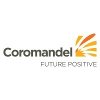
Executive Production Interview Questions & Answers
Coromandel Internationalposted on 3 May 2019
I applied via Naukri.com and was interviewed before May 2018. There were 5 interview rounds.
Interview Questionnaire
1 Question
- Q1. Process related.. Safety relates.. Process flow diagram
Interview Preparation Tips
Experience: Process related
General Tips: Be confident.. Tell as much as u know
Skills: Communication, Body Language, Leadership, Presentation Skills, Decision Making Skills
Duration: 1-4 weeks

I applied via Recruitment Consultant and was interviewed in Sep 2020. There were 5 interview rounds.
Interview Questionnaire
4 Questions
- Q1. Related plant
- Q2. Safety
- Q3. Basic of chemical engineering
- Q4. Your previous company based
Interview Preparation Tips
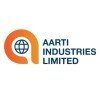
Interview Questionnaire
2 Questions
- Q1. Related instrument, how many I/Os in plant?
- Q2. How the DG work during power failure?
- Ans.
DG works as a backup power source during power failure.
DG stands for Diesel Generator.
It automatically starts when there is a power failure.
It provides power to essential equipment and systems.
It requires regular maintenance and fuel supply.
Examples of essential systems powered by DG are elevators, emergency lights, and fire alarms.

(2 Questions)
- Q1. How to identify cl2 leackage
- Ans.
Chlorine gas (Cl2) can be identified by its pungent odor and yellow-green color.
Use a gas detector to measure the concentration of Cl2 in the air.
Look for signs of respiratory irritation or difficulty breathing in individuals exposed to Cl2.
Check for yellow-green discoloration on surfaces or in the air.
Be aware of potential sources of Cl2, such as swimming pools, water treatment plants, and chemical manufacturing facil
- Q2. How to get more yield
- Ans.
To increase yield, optimize production processes, improve crop quality, and reduce waste.
Implement precision agriculture techniques
Use high-quality seeds and fertilizers
Monitor and manage soil health
Reduce water usage through drip irrigation
Implement crop rotation and cover cropping
Reduce post-harvest losses through proper storage and transportation
Invest in research and development for new technologies and practices
Interview Preparation Tips

I applied via Recruitment Consulltant and was interviewed before Dec 2023. There was 1 interview round.
(2 Questions)
- Q1. Material balance of plant
- Q2. Material of construction related question
Interview Preparation Tips

I applied via Company Website

I am a hard work & honestly person.
Team management & timing planning
Interview Preparation Tips

I applied via Naukri.com and was interviewed in Jun 2021. There were 3 interview rounds.
Interview Questionnaire
11 Questions
- Q1. What is polar and non polar slovent?
- Ans.
Polar solvents have a positive and negative end, while nonpolar solvents have no charge.
Polar solvents dissolve polar solutes and nonpolar solvents dissolve nonpolar solutes.
Water is a polar solvent, while oil is a nonpolar solvent.
Polarity is determined by the electronegativity difference between atoms in a molecule.
- Q2. What is your job responsibilities?
- Q3. What is fire extinguisher.its classes
- Ans.
A fire extinguisher is a device used to control or extinguish small fires. There are different classes of fire extinguishers for different types of fires.
Fire extinguishers are classified based on the type of fire they can extinguish.
Class A fire extinguishers are used for fires involving ordinary combustibles like wood, paper, or cloth.
Class B fire extinguishers are used for fires involving flammable liquids like gaso...
- Q4. Role of safety valve, rupture disc?
- Ans.
Safety valves and rupture discs are important safety devices in production processes.
Safety valves are designed to release excess pressure in a system to prevent explosions or other hazardous situations.
Rupture discs are used as a backup to safety valves and are designed to burst at a predetermined pressure to release excess pressure.
Both safety valves and rupture discs are critical components in ensuring the safety of...
- Q5. Heat exchanger design
- Ans.
Heat exchanger design involves selecting appropriate materials, determining heat transfer coefficients, and optimizing flow rates.
Consider the type of fluid being used and its properties
Choose materials that can withstand the temperature and pressure of the fluids
Calculate the heat transfer coefficients for each fluid
Optimize the flow rates to maximize heat transfer efficiency
Consider the overall size and cost of the h
- Q6. Material balance &energy balance equation
- Ans.
Material balance and energy balance equations are used to track the flow of materials and energy in a system.
Material balance equation is based on the principle of conservation of mass.
Energy balance equation is based on the principle of conservation of energy.
Material balance equation: Input = Output + Accumulation
Energy balance equation: Input = Output + Storage + Losses
Example: In a chemical reactor, the material ba...
- Q7. Heat transfer, modes of heat transfer ?its examples?
- Ans.
Heat transfer occurs in three modes: conduction, convection, and radiation.
Conduction is the transfer of heat through a material without any movement of the material itself.
Convection is the transfer of heat through the movement of fluids or gases.
Radiation is the transfer of heat through electromagnetic waves.
Examples of conduction include touching a hot stove or iron, while examples of convection include boiling wate...
- Q8. Bernoullis equation
- Q9. What is centrifugal force?
- Ans.
Centrifugal force is the apparent force that acts outward on a body moving around a center, arising from the body's inertia.
Centrifugal force is not a real force, but rather a perceived force.
It is the result of an object's inertia trying to keep it moving in a straight line while it is being forced to move in a circular path.
Examples include the feeling of being pushed to the side in a car when turning a corner, or th...
- Q10. Dryer type?
- Ans.
There are various types of dryers used in production, including rotary dryers, fluidized bed dryers, and spray dryers.
Rotary dryers use a rotating drum to dry materials.
Fluidized bed dryers use hot air to suspend and dry materials.
Spray dryers use a nozzle to spray liquid into a hot air stream, creating a fine powder.
Other types of dryers include freeze dryers, vacuum dryers, and paddle dryers.
- Q11. What is difference between ahu &hvac
- Ans.
AHU is a part of HVAC system. AHU is a device that circulates air while HVAC is a system that controls temperature, humidity and air quality.
AHU stands for Air Handling Unit
AHU is a part of HVAC system
AHU circulates air while HVAC controls temperature, humidity and air quality
HVAC stands for Heating, Ventilation and Air Conditioning
HVAC is a system that provides thermal comfort and acceptable indoor air quality
Examples...
Interview Preparation Tips
Focus on heat teansfer subject and thermodynamics.
PI Industries Interview FAQs
Some of the top questions asked at the PI Industries Executive Production interview -
Tell us how to improve this page.
PI Industries Interviews By Designations
- PI Industries Production Supervisor Interview Questions
- PI Industries Executive Interview Questions
- PI Industries Research Scientist Interview Questions
- PI Industries Executive Production Interview Questions
- PI Industries QC Chemist Interview Questions
- PI Industries Senior Executive Interview Questions
- PI Industries Instrumentation Supervisor Interview Questions
- PI Industries Maintenance Engineer Interview Questions
- Show more
Interview Questions for Popular Designations
- Production Engineer Interview Questions
- Production Supervisor Interview Questions
- Production Manager Interview Questions
- Production Officer Interview Questions
- Production Interview Questions
- Senior Production Engineer Interview Questions
- Production Chemist Interview Questions
- Production Operator Interview Questions
- Show more
PI Industries Executive Production Interview Process
based on 2 interviews
Interview experience
Interview Questions from Similar Companies
Fast track your campus placements
PI Industries Executive Production Reviews and Ratings
based on 27 reviews
Rating in categories
|
Production Supervisor
703
salaries
| ₹1.8 L/yr - ₹9.2 L/yr |
|
Executive
258
salaries
| ₹3 L/yr - ₹10.6 L/yr |
|
Supervisor
242
salaries
| ₹2.2 L/yr - ₹8.5 L/yr |
|
Research Scientist
215
salaries
| ₹4 L/yr - ₹11 L/yr |
|
Senior Executive
164
salaries
| ₹6.1 L/yr - ₹14.6 L/yr |

Aarti Industries

UPL

Coromandel International

Rallis India
- Home >
- Interviews >
- PI Industries Interview Questions >
- PI Industries Executive Production Interview Questions










